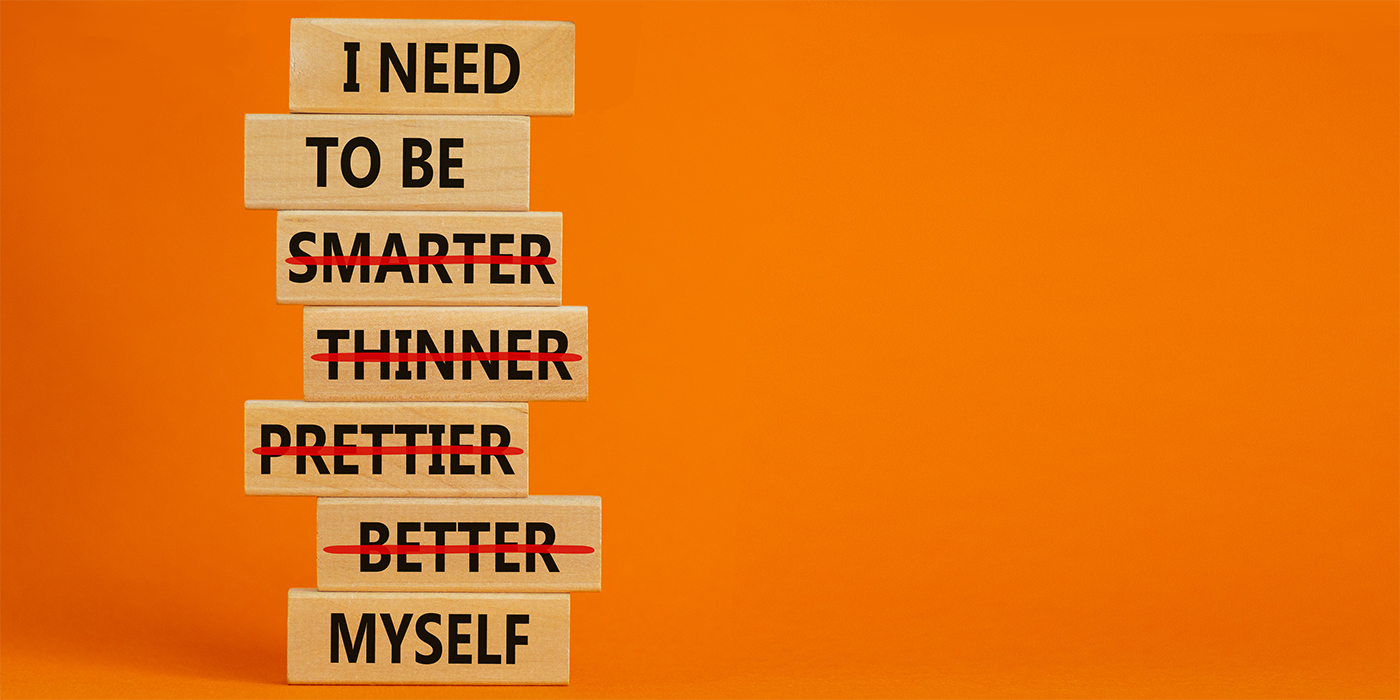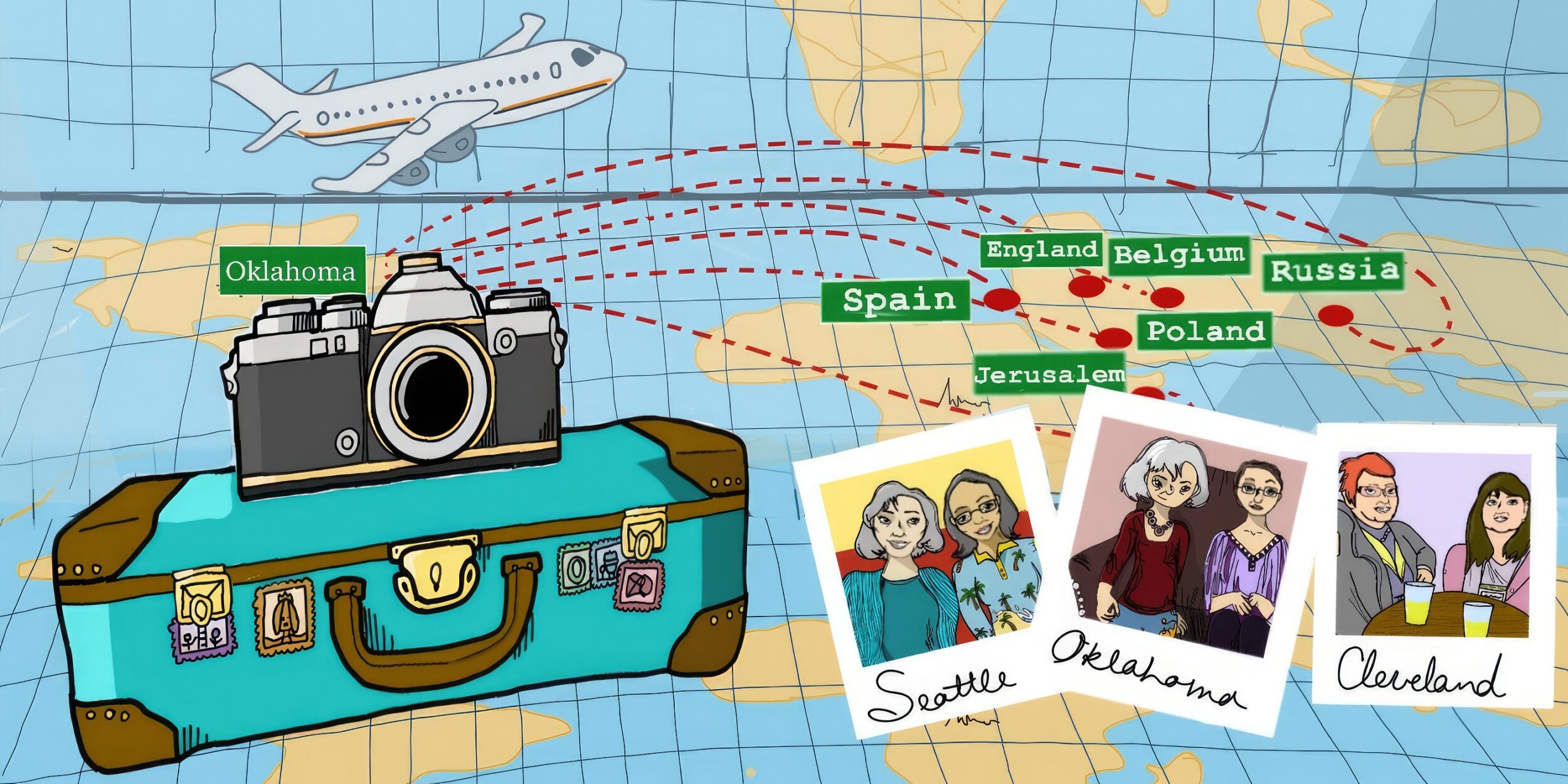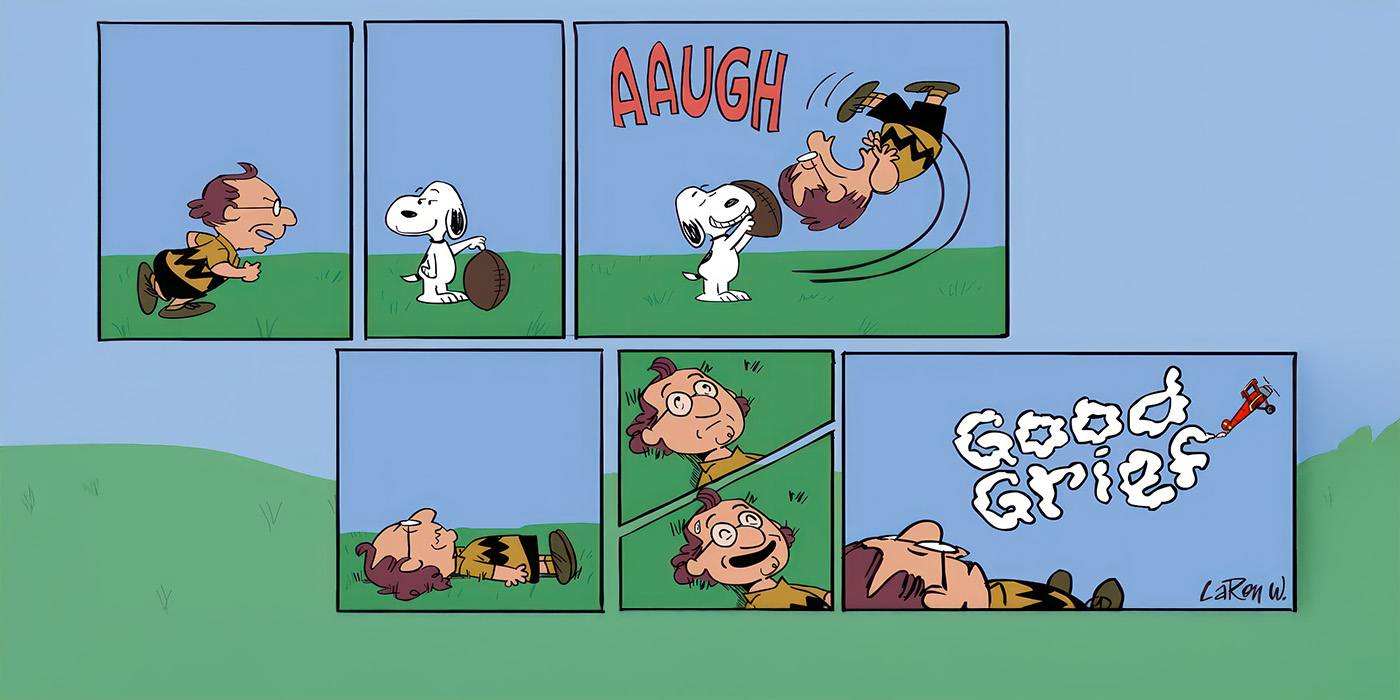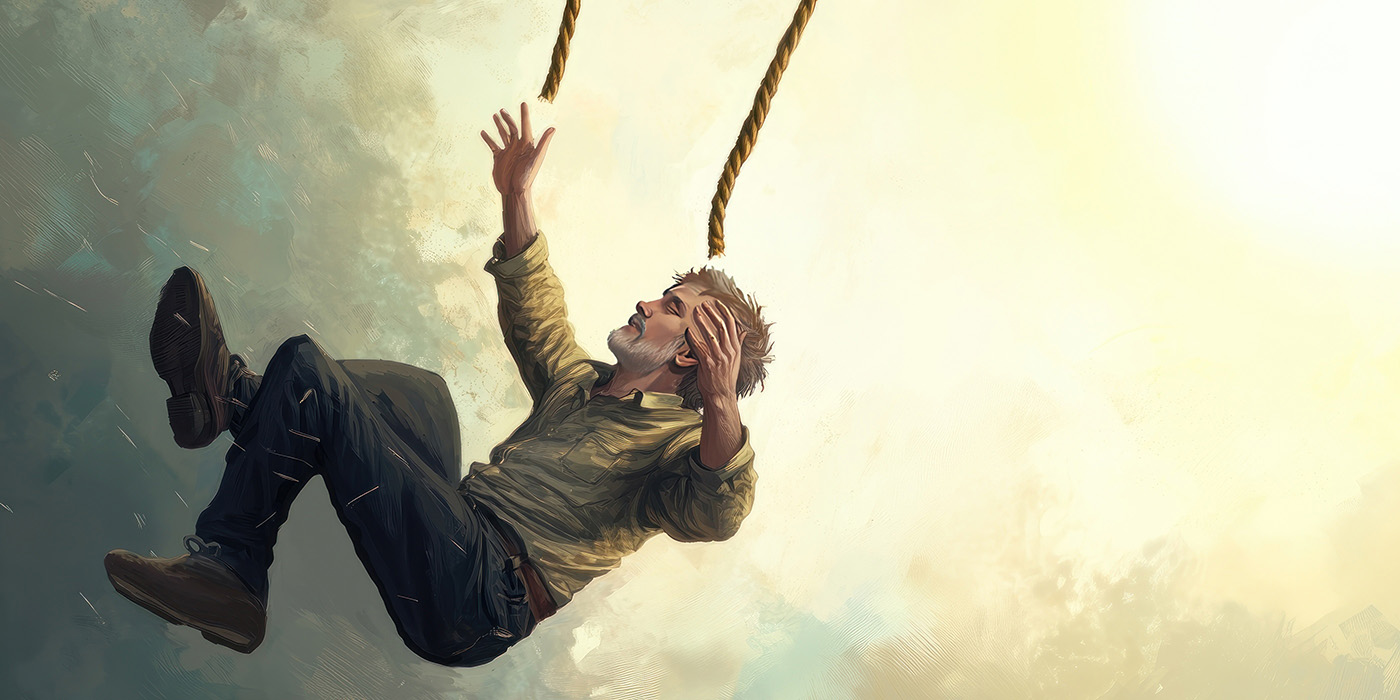
I will try to share my experience, strength and hope as it touches upon the role my father Roy K. played in both my addiction and recovery. It's been a bumpy road for us both, thanks to our addiction and character defects.
Of course our conflicts and issues were not the real problem. We just didn't see that at the time. We were caught in the grip of the blame game, one looking to fix the other instead of looking inward to fix ourselves. We tried to clean up each other's yard instead of cleaning up our own. It's hard enough to change myself, but impossible to change others. In fact I've found it impossible to change myself without practicing the spiritual principles found in SA. Principles such as forgiveness and accepting others as they are. "Live and let live"—the path to peace.
I regret that my father and I could not achieve this until he was dying of cancer. This was in September of 2009. It was in his last moments that the veil was parted and we saw past ourselves into each other. Our hearts were joined in complete forgiveness and reconciliation. Thank God. How very sad it would have been if he had passed without experiencing that.
My addiction started long before I ever experienced lust or sex. It started with pain and trauma that would later need relief by lust ‘medication’. This began in my preschool age. Dad was deep in his sexaholism, absent most of the time, chasing the Big Fix as he calls it in the White Book. When he was home, he was emotionally unavailable. He was seldom engaged with family unless it was to rage at us when we disturbed him. These moments were horrifying. A perfect example was the time he was driving the family somewhere. I was in the back seat tapping my fingers on the upholstery. He turned around while driving, his face contorted with rage and screamed, "If you don't stop, I'll drive this car off the road!" Never a dull moment with Dad! I couldn't think or move. It was like being electrocuted. I went numb with shock.
Events like these sent me retreating into self-protective ways of living, adopting survival tactics to cope with life. This is where my addiction started. I needed a happy place where I could hide. I became a daydreamer. Fantasies were my escape. Compulsive eating soothed the fear. Later, science-fiction books took me to other worlds. This was constant and habitual, the seeds of addiction. At a pre-pubescent age, I discovered masturbation. I was immediately addicted. The addiction blossomed very quickly. What a relief it brought. It had a narcotic effect that lasted long after the act. It became my drug of choice. (Notice how often my dad refers to sex addiction as a drug in the White Book.) It was better than food and fantasy. But of course I kept those addictions going as well. By this time I was a sexaholic fourth grader!
When I entered puberty and discovered girls, the fantasizing took on a romantic, erotic turn—rocket fuel for my dis-ease. I was too shy to talk to girls, but I sure could fantasize about them. Living in my head trapped me inside myself, unable to learn how to relate to girls. Fear paralysed me and I took great care to medicate that fear. I had been emotionally battered into believing that I was defective and undesirable. I even believed I was physically ugly. Decades later I found out that none of this was true. I felt inadequate and was afraid I'd embarrass myself with girls and be rejected. I was terrified of rejection. The need to medicate went very deep. When I was fifteen I added drugs to the mix.
I know now that Dad never wanted to be that way. He was not a mean person. He was not physically abusive. He was tender-hearted. He loved us, but for us it was confusing to experience love and rage in the same house. His disease made him irrational and reactive. My disease did the same to me, but to a lesser degree, thanks to how he got into recovery and changed. He could not control his outbursts no matter how much he wanted to. Once, when I was a teenager, he went into a rage and verbally leveled me for a small infraction that wasn't a big deal at all. He was devastated afterward. He wept with sorrow as he tried to comfort me.
Anyway, my erotic fantasies progressed to stealing girlie magazines from the corner store, then to pornographic movies and videos, then to marriage. Like many of us, I thought having a moral outlet for my sexuality would solve the problem. It did not. Repeated discoveries by my wife soon followed. Then there was hurt, anger and betrayal. She thought she had married a different person. She didn't know that the real me loved hiding and keeping secrets like cyber sex and flirting and trying to connect, chasing the intrigue, the tease and the forbidden. Trust went out the window. I couldn't refrain from checking out other women in front of her. Wow. It hurts to remember how I hurt her in so many ways. I am so grateful I don't have to do that with my current wife and precious life partner.
I tried to stop many times, but could not. I looked to my religious beliefs to try and get healing. I tried therapy and self help books. I thought I could be fixed by someone or something external to myself, not realizing that this was magical thinking. Sure, I learned many useful things that help me to this day, but knowledge and beliefs won’t keep addiction in check. I didn't realize that to win, I would have to lose. I didn't realize that it would take action on my part and a willingness to completely change my way of life in order to get well.
By this time my dad had gotten sexually sober and was in recovery. There was no sex addiction program in town at the time. He joined AA in order to treat his sexaholism. He got by in AA for a number of years. It was through AA that he learned the principles of 12 Step recovery that were to become the foundation of Sexaholics Anonymous. He made amends to the family, but was too inexperienced to do it smoothly. He alienated us in the process. We had our role in this too. He tried to Twelfth Step me even though I wasn't ready. I did learn from this experience though. I didn't make these mistakes with my family when I got sober, though I made plenty of other mistakes. At the time, I didn't want what he had. I argued with him about his sobriety definition. After all, there's nothing wrong with masturbation, I said. I just needed to control it. I later learned that right and wrong have nothing to do with it.
I believed his sobriety definition was based on his Christian beliefs. He was a seminary graduate and had been an associate pastor at a local church. He left the ministry so he could act out free of restraint. I remember the time he brought a hooker home and introduced her to the family. I think he was trying to help her, but it felt very strange. I didn't know who she was until years later. Did he meet her when he was acting out? I still don't know. Sexaholics can do crazy, chaotic things.
After a number of years of sexual sobriety, he admitted to having a religious addiction and never rejoined a church. I went through that as well, following his example, I guess. I now know that SA's sobriety definition addresses, not morality, but the reality of our diseased condition. Morality is not the issue when addiction is the controlling behavior. To paraphrase the White Book, we have taken ourselves out of the whole context of right and wrong. In one of his non-program writings, I read that he considered straight and gay people as being fundamentally the same in what he called their pseudo-sexuality of lust.
As my disease progressed and the consequences became more painful, I became open to Dad's efforts to reach me. I took his advice and joined AA like he did. In AA, I abstained from acting out sexually for five years before I relapsed. I had still been lusting. I didn't understand that lust is the first drink. Probably, I didn't want to understand. My focus was on not acting out whilst holding on to lust. I was in denial like any good sexaholic. I was like the alcoholic who was determined not to drink the whole bottle, believing one shot wasn't the problem.
Years later after I began surrendering lust on a daily basis and, much to my surprise, I found that I didn't have the urge to look at porn, masturbate or act out sexually anymore. When there's no first drink, I'm not triggered to drink, so to speak.
During those first five years in AA, I was abstinent, not sober. I was still crazy, still reactive and emotionally intoxicated with conflicts and fears. I couldn't feel emotion. I was full of resentment and anger. And of course, I relapsed. I tried again later on and got another five years’ abstinence before relapsing again. By then, other sex addition programs were coming on line. I got another five years of abstinence in one of these. But the admission that lust was the first drink still eluded me. I was allowed to define my own sobriety definition and I did not include lust. I relapsed a third time.
That phase of recovery in the mid ‘80s did not bring me to an admission of powerlessness over lust or to a willingness to surrender. This didn't happen until March 25, 2014, when I finally joined Sexaholics Anonymous. That was five years after my dad passed away. I have not had the urge to act out since then, when I drew a red line at lust. I wish my dad had lived to see me in Sexaholic Anonymous. It would blow his mind to see me here today, speaking at an SA convention in Armenia! It blows my mind!
Each time I started one of those five year stretches of abstinence, I felt like I'd hit bottom. I see now that my motivation was fear of dire consequences. I was still trying to control my disease, selective in my adoption of the program instead of embracing complete surrender to it. I decided the actions I would take or not take, based on what I felt like doing or not doing - half measures. Like for example, getting a sponsor but not using the sponsor; like starting the Steps but stopping at Step 4, etc. I was trying to get away with doing as little as possible instead of making this program a way of life and doing whatever it takes to stay sober. It was a Dan-directed program, rather than a Higher Power-directed program.
Today I have evidence that I've hit bottom. I let the program use me. If it wants me to see me stand on my head so to speak, I stand on my head. If the White Book calls for a period of mutual celibacy in my marriage so that I can heal from lust, then so be it. Program actions can be hard. I'm an addict. I don't do hardship. I run from it or medicate it. Today, it’s different. So long as I maintain a healthy spiritual condition a day at a time, I quit fighting and am willing to go through hardship and suffering without resorting to toxic medication.
Today I call or text before acting out instead of after acting out. In meetings today, I share the solution instead of dumping the problem. I work the Steps continually. I have multiple service positions in SA as well as my food and drug addiction programs. I call my sponsor once a week or more. I am a sponsor. The list of lifestyle actions goes on and on. No more half measures.
My second marriage is unbelievably wonderful now that it's not polluted with lust. My wife knows she's safe. She trusts me. Thanks in part to our periods of celibacy, lust is out of the marriage bed. There's a quality of love, camaraderie, intimacy and physical union that I didn't know was possible. This is from practicing the principles of recovery that my dad discovered and wrote about in the White Book. I no longer resist those ideas. No more contempt prior to investigation or paralysis by analysis. Well, for the most part. None of what I describe here is perfect. It's more accurate to say I'm making progress. I no longer wait until I feel like practicing the principles. I take the action; the enthusiasm follows. Most of the time anyway. Sometimes, when a program action really feels like the opposite to what I feel like doing, I slip into self-will and resist. But it doesn't take long for me to wake up and get back in action.
I believe that fear and self-deification have been at the root of my unwillingness and resistance. In order for me to get well, I had to experience in full the painful consequences of my unwillingness. This is what got me to surrender to the principles of the program. I had to face my desperate underlying fears. One day when desperation pulled me into the depth of despair, I prayed and gave God full permission to do whatever it took to bring me to my knees and surrender. I waited then, thinking that something terrible was going to happen. I thought God might break my spirit and pound me into the ground with horrible consequences so that I'd act out again. Like a punitive parent.
Instead, I was taken to the edge of the abyss and shown my end. In horror, I saw where I was headed. It was after my third relapse. I'd recently remarried and had stopped going to meetings or working any kind of program. The lust became stronger and more frequent. It escalated to internet porn again. I'd start, then swear off, just like old times. I tried to control it, to stop it, but demoralization and depression set in. Yet I still resisted getting back into recovery. I kept trying to control and enjoy it. By this time I knew that the other S-program would not work for me. And then I thought, “Oh no! I might have to go to SA and admit that Dad was right!” Right there, I knew instinctively that I'd have to give up lust. Darn! I stalled, I couldn’t take that step, but my condition got worse and worse. Finally I realized that I was about to fall back into full-blown sexual addiction again. This would devastate my wife who married me thinking that I was done with sex addiction. I stood to lose another marriage. I was about to be sucked back into the abyss. It was a moment of absolute clarity. It was like being hit with a bucket of ice water. I was shocked at the clarity. In this awakened state, I felt the sheer horror of this disease. I knew I'd have to go to SA, but had yet to act on the decision. The very next day, my wife approached me. She was tense but not controlling. She asked if I'd thought about going back to meetings. I was relieved. I was ready.
I'd given God permission to do whatever it took and that's how He did it. I had been willing to let God punish the hell out of me. Instead, he opened my eyes to the abyss that I was heading for. Some of us do experience horrible consequences, but I don't believe that it's the same as punishment from an angry parent. It's God's way of motivating us, borne out of his intense love and desire to save us. It's worth every drop of blood we have to pay. The freedoms and joys of recovery are simply not available any other way.
So, what does surrender to the program look like for me? It's not just taking the Third Step where I make a decision to turn my will and life over to God. Step Three is not the surrender. It's only a decision to begin a lifestyle of surrender. There is always evidence of a surrender and that evidence is action. If there's no action, I haven't surrendered - action like working the Steps, like service, and using the tools of the program.
Then there's surrendering the lust hits. When I finally became willing, no one needed to tell me to make surrender calls or texts to other members. In the first two years there were days I'd make three to five calls a day. I’ve known what to do for years now so it's instinctive for me to do whatever it takes to stay sober. It's instinctive for me to pray for the person who's triggering my lust. It's instinctive for me to not act out, no matter how uncomfortable I may be. It's obvious when I need to call my sponsor, etc, etc. It's simple, but not easy. The disease always pushes back.
Fighting lust is a losing battle. It's like stepping into the ring with a heavyweight boxer. He’s going to knock me out every time. But now I have a Big Brother who will step in the ring for me and knock out that fiend. However, Big Brother will not do it unless I go to the gym every day and work out as if I'm the one going into the ring. I have to do my part. It's like Dad used to say, "Without God I can't. Without me God won't."
My workout consists of things like quiet time before I start the day, reading program literature, doing my step work, doing service, praying, meditating, doing nightly Sixth, Seventh and Tenth Steps, going to meetings, and doing anything else that Big Brother directs. I have found that when lust does hit, the effort to surrender does not work unless I've been doing my part.
Sobriety is one thing; recovery is another. Recovery means dealing with life on life's terms. It means dealing with character defects that cause conflict, fear, guilt, resentment and other forms of emotional intoxication. If I'm not careful, emotional intoxication will lead to lust and sex intoxication. Emotional and lust intoxication have always brought pain to me and others. My disease constantly looks for excuses to revive itself, always offering itself as a relief. As my defects come under my Higher Power’s control and I slowly gain peace of mind, my disease has less to offer. However, like my dad used to say, "I'm not free from lust, but I'm free not to lust."
My nightly Step Ten inventory is critical to my recovery and growing peace of mind. It shows me the shortcomings that are active in me. Step Six is where I become willing to have God remove them. Step Seven is where I ask God to remove them. I used to think Step Six meant becoming willing to stop the defects. I used to think that Step Seven meant asking God to help me stop them. Those interpretations were through the filter of self-will. I can't control the defects on my list. That's why I never got anywhere with them. I'm as powerless over my defects as I am over lust. Nowadays, I ask for the willingness to have God remove them. Then I ask God to go ahead and take them, doing for me what I cannot do for myself. The same with lust. If God doesn't do it, it won't get done. If it doesn't get done then there's something for me to learn and grow from. I now view seemingly unanswered prayers as opportunities for growth. Like others before me I can honestly say I am grateful to be a recovering sexaholic.
Finally, I think I should mention that I've had to get outside help in order to stay on track in recovery and remain reasonably sane. Being bipolar, I've needed to undergo therapy. The pain and insanity of mental illness have been large parts of what fueled my addictions. They’ve kept me from gaining traction in the program. It's said that resentment is the number one killer of addicts. I have observed in myself and others that trauma is also a killer of addicts. My wife is in Twelve Step recovery; she is also on the staff at one of the premier trauma treatment clinics in the US, and her training and experience supports this observation.
Thank you for helping me remain sober. May your Higher Power ultimately bless you beyond expectation. May you keep coming back to matter what. I say again, keep coming back no matter what.
Dan K., California, USA






